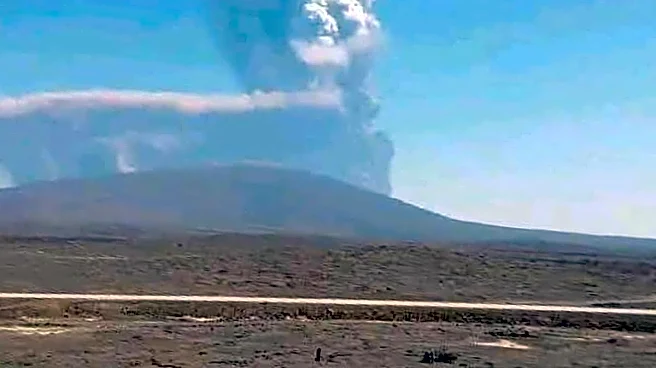A resident in Ethiopia’s Afar region said the ground shook “like a sudden bomb had been thrown” when a long-dormant volcano unexpectedly erupted over the weekend, sending towering ash clouds across the Red
Sea toward Yemen and Oman.
Speaking to the Associated Press, witness Ahmed Abdela told local authorities he heard a loud blast and felt a shock wave as ash and smoke billowed into the sky on Sunday morning.
The eruption occurred at the Hayli Gubbi volcano, which has no previous recorded history of activity, according to local administrator Mohammed Seid. The nearby village of Afdera was blanketed in ash, though officials said there were no casualties. Seid warned that the fallout could damage the livelihoods of livestock herders whose animals now have little to graze on as ash covers the landscape.
❗️🌋🇪🇹 – Ethiopia’s Hayli Gubbi Volcano Awakens After 10,000 Years
In a stunning geological event, Ethiopia’s Hayli Gubbi volcano—long dormant in the remote Danakil Depression of the Afar Rift—erupted explosively for the first time in recorded history on November 23, 2025.
The… pic.twitter.com/bZby4sAuOC
— 🔥🗞The Informant (@theinformant_x) November 24, 2025
The Toulouse Volcanic Ash Advisory Center in France confirmed the eruption after detecting it on satellite imagery. Residents said parts of the village, located near the Danakil desert tourist route, remained coated in ash on Monday, leaving tourists and guides stranded. Local authorities also released photos and videos showing a massive ash plume rising from the volcano.
Seid said the eruption’s economic impact could be significant despite no loss of life so far. “Many villages have been covered in ash and as a result their animals have little to eat,” he said.
Volcanic ash from the sudden eruption of Ethiopia’s long-dormant Hayli Gubbi volcano drifted toward India’s west coast, prompting aviation authorities to issue alerts and forcing several airlines to cancel or reroute flights as a precaution.
Meteorological agencies tracking the ash plume said shifting upper-air winds carried fine particles across the Arabian Sea, creating potential risks for aircraft engines and visibility. Airlines operating on Gulf and African routes have also announced cancellations and delays.



/images/ppid_59c68470-image-177099255243254847.webp)

/images/ppid_59c68470-image-177099253828799666.webp)



